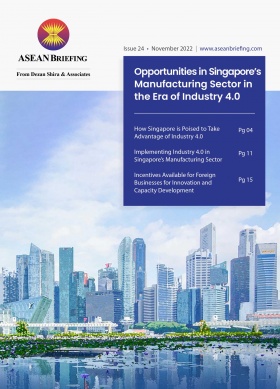Vietnam to Ease Visa Requirements to Boost Tourism Industry
Vietnam is seeking to ease visa requirements to boost foreign tourist numbers. Among the changes being discussed is increasing the duration of e-visa recipients to 45 days as well as increasing the list of countries for visa exemption.
Vietnam’s government is seeking to relax visa requirements to woo more foreign visitors into the country and boost the tourism industry.
Among the changes being discussed include offering more visa waivers for foreign tourists, expanding the e-visa program, and increasing the duration of stays for visitors.
Vietnam expects to handle 110 million domestic and foreign tourists in 2023, with an estimated 8 million coming from foreign arrivals. This is an increase from the 3.77 million foreign tourists that arrived in Vietnam in 2022, but still shy from the 18 million foreign visitors in 2019. Further, the total turnover from tourism is expected to reach US$27 billion in 2023.Vietnam had approximately 100 million domestic tourists throughout 2022.
Increasing the list of countries for visa exemption
The government plans to waive visas for more countries. The country currently has a waiver on visas for travelers from 25 countries; this is small compared to 162 for Malaysia, 157 for the Philippines, and 68 for Thailand.
13 countries from Europe and two in Asia have been granted visa waivers and can stay in Vietnam for up to 15 days. Visitors from nine ASEAN countries can stay for up to 30 days in Vietnam. Further, the government offers e-visas for up to 80 nations without the need to go through a guarantor agency or organization.
Prolonging the duration of e-visas
The government is also exploring the strategy to prolong e-visas from 30 days to a maximum of three months (45 days). The e-visas will be valid for multiple or single entries. Currently, visitors from 80 nations can enter Vietnam through a one-month single-entry visa.
Reviving Vietnam’s tourism industry by branching to non-traditional markets
In addition to easing visa requirements for foreign tourists, Vietnam’s tourism industry should diversify in terms of attracting visitors from non-traditional markets.
For instance, Indonesia, the Philippines, Thailand, and Malaysia have a combined population of over 300 million and are geographically closer compared to the foreign visitors who hail from the traditional markets in Europe and the US. Further, the growing middle class in these Southeast Asian countries and the increasing trade they conduct with Vietnam are also important reasons why Southeast Asia can be an important source of income for Vietnam tourism.
Vietnam also has an opportunity to develop its Halal tourism industry considering that 42 percent of Southeast Asia, or approximately 240 million people adhere to Islam in the region. Over the past few years, non-OIC countries, such as Japan, France, Italy, and South Korea, have been trying to accommodate Muslim tourists, providing important facilities, such as prayer rooms and Halal food.These countries are eager to capture the spending on global Halal tourism, which is expected to reach US$274 billion in 2023 and see a projected 140 million Muslim travelers.
As a key food manufacturer in the region, Vietnam has already seen a rise in businesses applying for Halal certification. Some 60 percent of the country’s provinces and cities are producing Halal-certified goods for exports in 2021.
About Us
ASEAN Briefing is produced by Dezan Shira & Associates. The firm assists foreign investors throughout Asia and maintains offices throughout ASEAN, including in Singapore, Hanoi, Ho Chi Minh City, and Da Nang in Vietnam, in addition to Jakarta, in Indonesia. We also have partner firms in Malaysia, the Philippines, and Thailand as well as our practices in China and India. Please contact us at asean@dezshira.com or visit our website at www.dezshira.com.
- Previous Article Singapore and Vietnam Sign MoUs to Enhance Economic Cooperation
- Next Article Incentives for Doing Business in Indonesia








